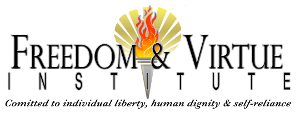Concern for the poor is an essential part of being a Christian. Yet, Christians often don’t know how to effectively engage people who are in poverty, often coming from social and ethnic backgrounds very different from them. The temptation is to substitute reason with emotion and to offer transactional systems of care instead of the arduous task of encounter.
More damaging is the attitude of many to bureaucratize and institutionalize approaches to poverty out of a frustration with their inability to find solutions. Although historically those in need could count on neighbors, local churches and other civic associations in times of need, it seems that now that sense of local responsibility is lacking. The idea that closeness to the task at hand embodies a larger responsibility for those who find themselves closer suffers every time structures of care that bypass basic communities not only exist but thrive.
It has been a long time since Alexis de Tocqueville wrote about an American culture where a strong local ethos of responsibility made America exceptional. Over time, our society has incrementally transferred responsibility toward larger structures of care and a welfare system based on the primacy of the state over other communities. In the process, our minds have acquiesced to that understanding, even if only implicitly. But how can we turn the tide? Marvin Olasky states, “The crisis of the modern welfare state is a crisis of government, but it is more than that. Too many private charities and foundations dispense aid based on what feels good rather than what works; they end up providing, instead of points of light, alternative shades of darkness.” A renewal of the mind and the heart of those attempting to help others is essential to turn the tide of the collectivization of “compassion.”
The FVI has developed a workshop in effective compassion to revive the principles that attended the birth of systems of care in early American life while adapting these ideas to the present conditions of our society.
Recommended Readings
For the Least of These: A Biblical Answer to Poverty, Anne R. Bradley & Art Linsley, Editors.
Renewing American Compassion by Marvin Olasky
Toxic Charity: How Churches and Charities Hurt Those They Help (and How to Reverse It) by Robert D. Lupton.
From Dependence to Dignity: How to Alleviate Poverty through Church-Centered Microfinance by Brian Fikkert and Russell Mask.


